5005 S. Cooper St.
Suite 250
Arlington, TX 76017
Meet the Specialists & Care Team at Urology Partners of North Texas
At Urology Partners of North Texas, our patients always have easy access to a comprehensive network of more than 38 urological specialists supported by physician assistants with deep expertise across the entire spectrum of urologic issues. Learn more about their individual areas of specialization.
Our Urological Specialists & Consultants
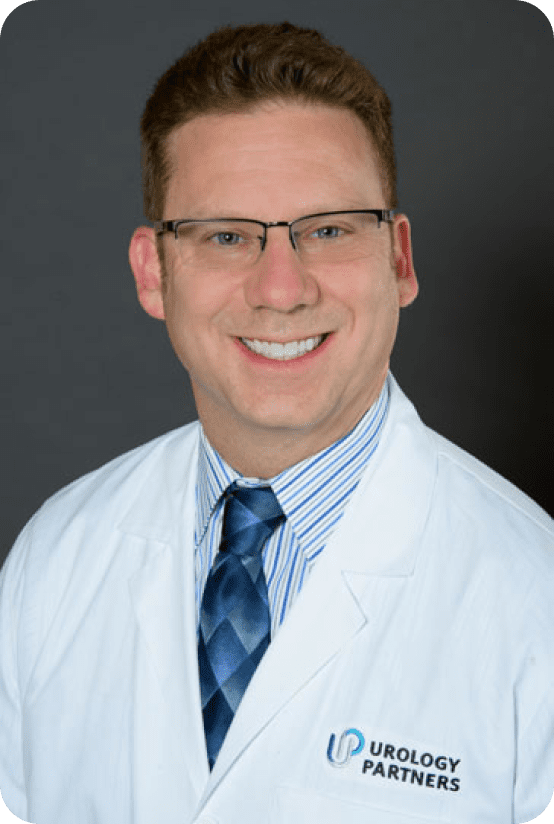
Harrison “Mitch” Abrahams, MD
“It’s really satisfying when I can remove a patient’s problem and help them be healthy so they can enjoy the rest of their life.”
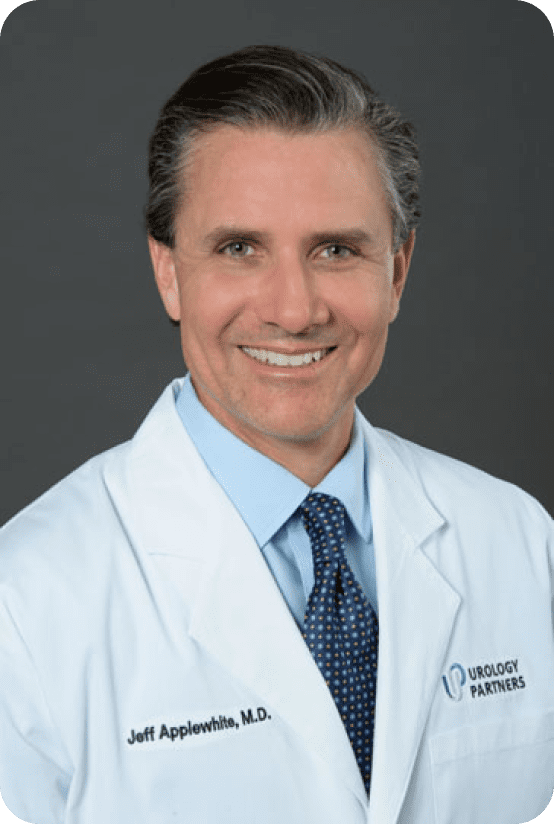
Jeffrey Charles Applewhite, MD
“My goal is to empower patients with an understanding of their diagnosis and options, along with giving them the time they need to share their concerns.”
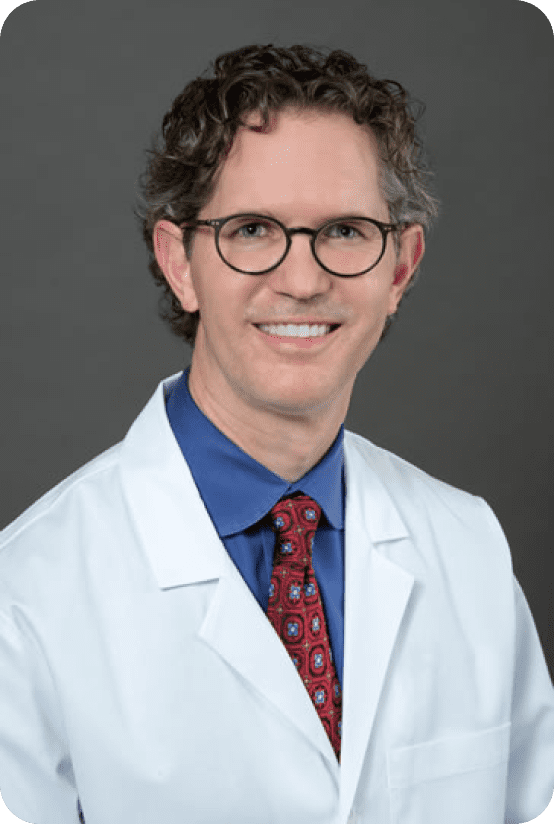
Jerry Barker, MD, DABR, FACR
“When I meet a patient who has just been diagnosed with cancer, I remember that it is a unique, humbling and frightening time in their life, and they deserve to be treated with special dignity.”
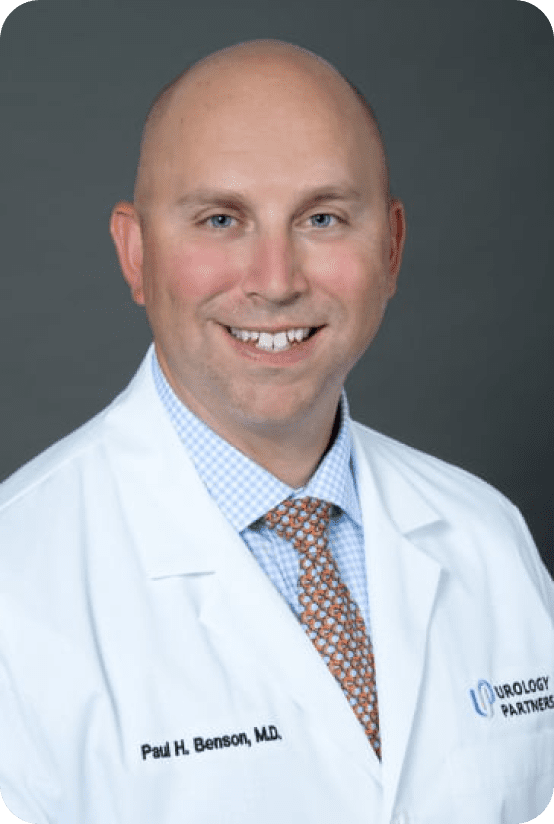
Paul Benson, MD
“To be able to help someone is such an honor and drives me to be a better physician.”
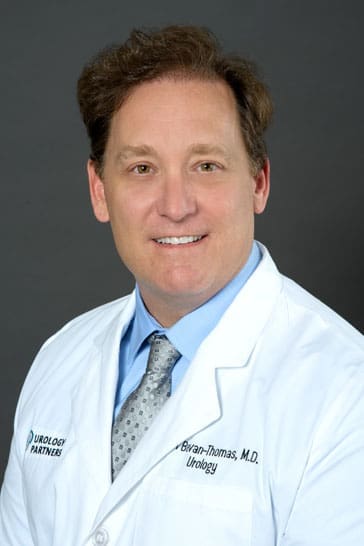
Richard Bevan-Thomas, MD
“Knowing that I can make a difference in patients’ lives makes me want to go to work each day.”
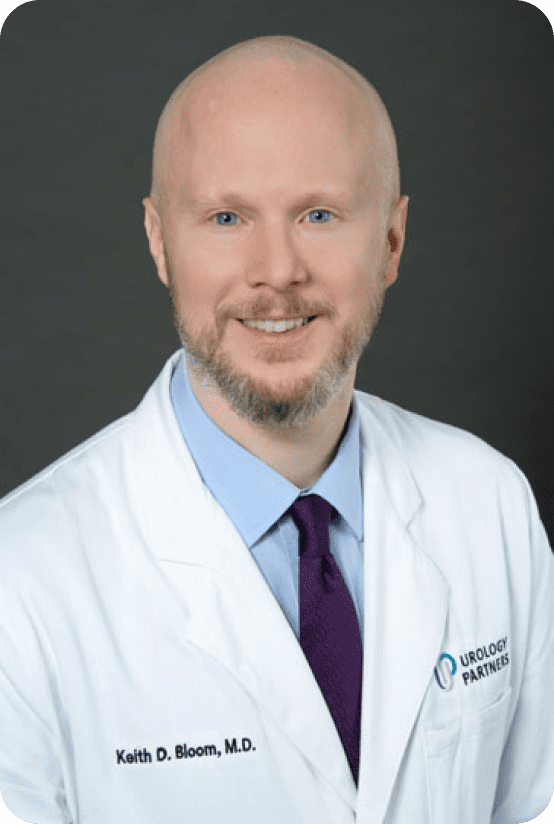
Keith D. Bloom, MD
“I care passionately about my patients and believe in caring for them as I would care for my own parents. I have always approached medicine that way.”
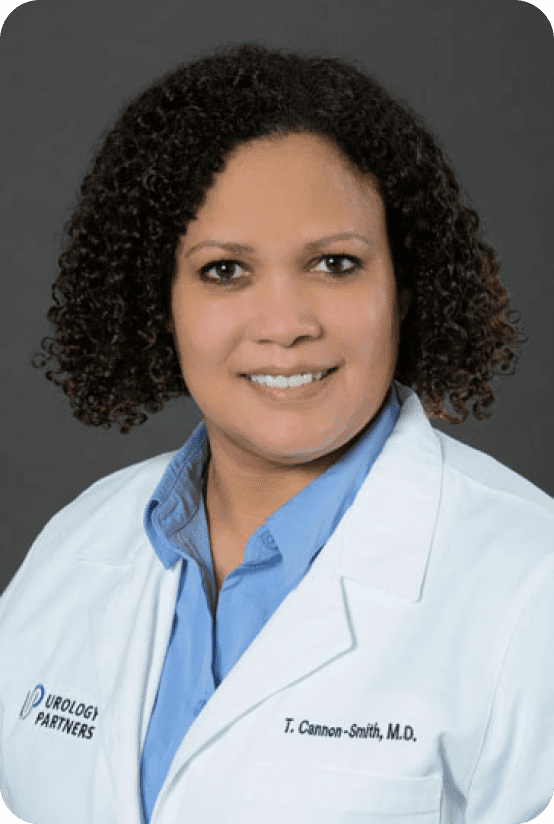
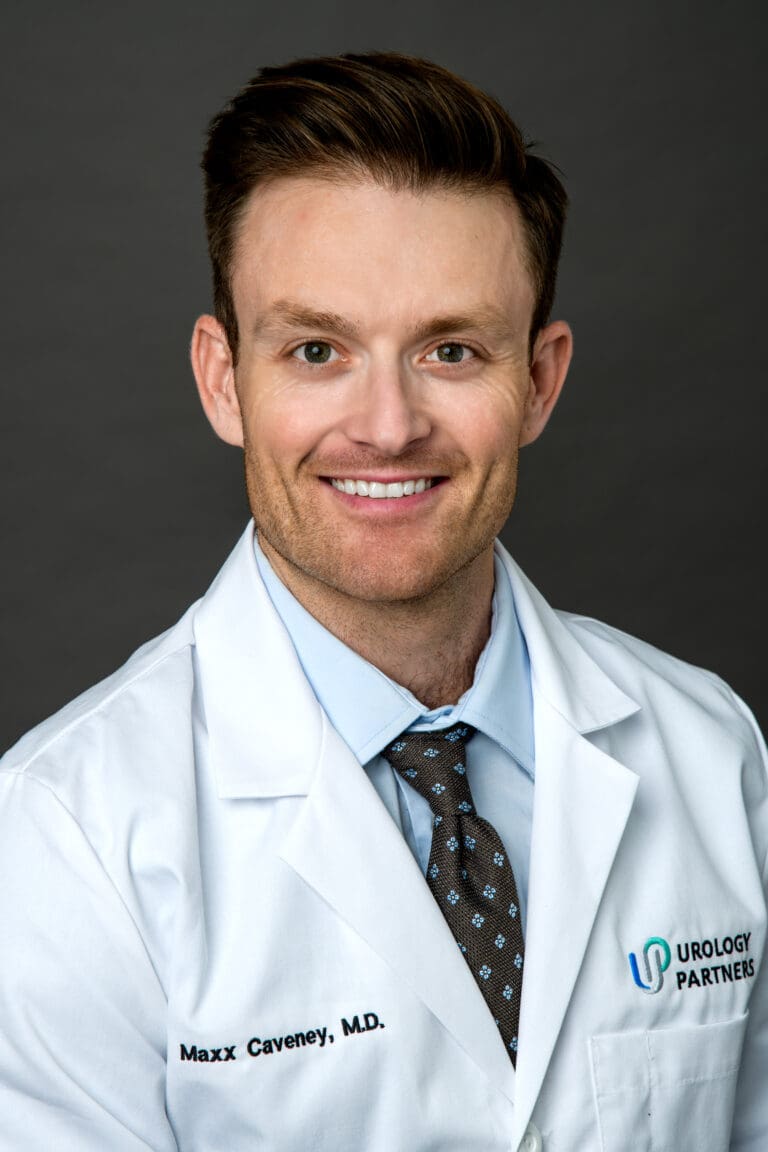
Maxx Caveney, MD
“As a urologist, you have the privilege of being entrusted with highly personal conversations about very private health concerns patients may not even share with their significant other”
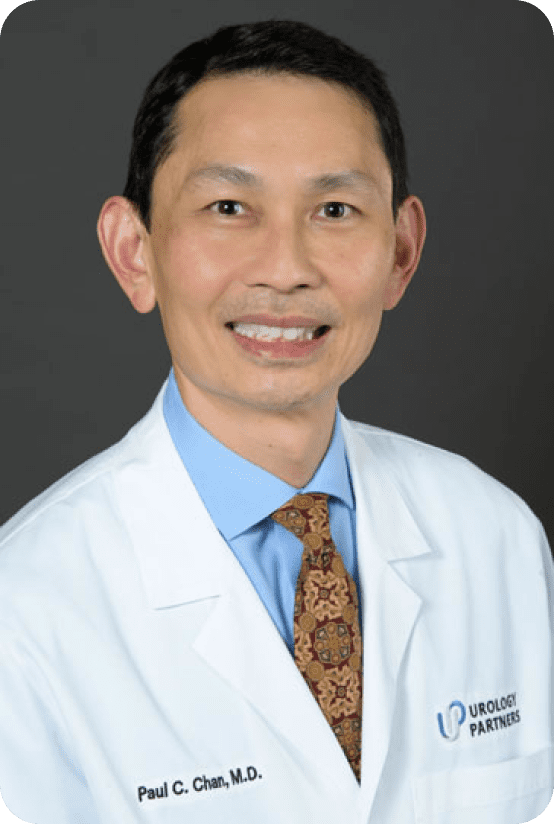
Paul Chan, MD
“There’s nothing worse than going to a doctor who doesn’t listen and spends the whole time looking at their computer. I pay attention. I want my patients to know I’m going to take great care of them.”
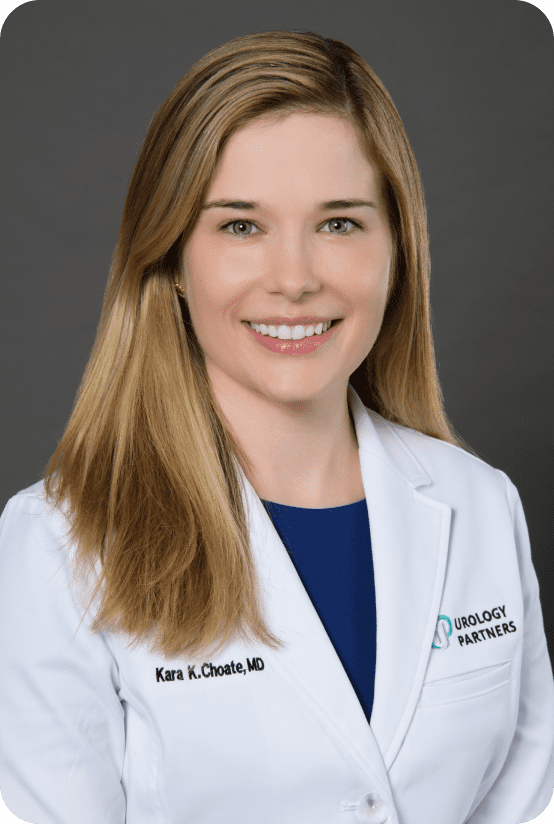
Kara Choate, MD
“The art of making these individuals feel comfortable and cared for and safe enough to talk about their very personal health issues is what makes urology special.”
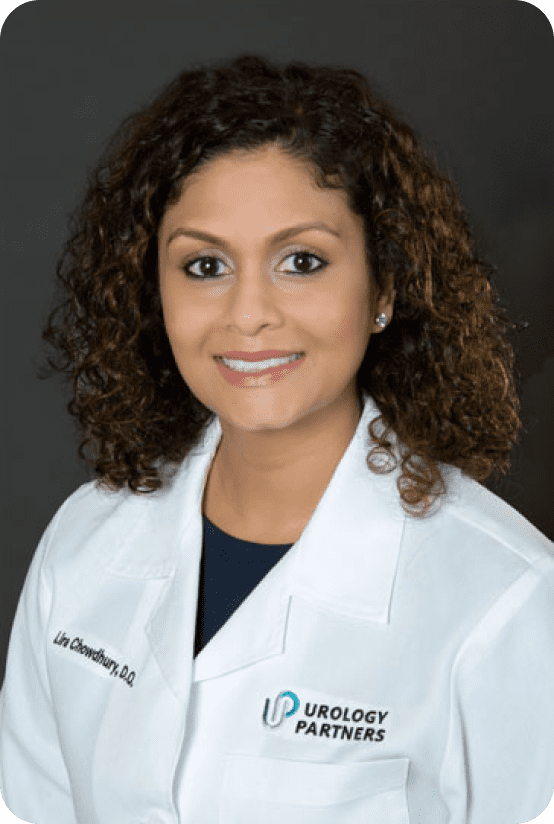
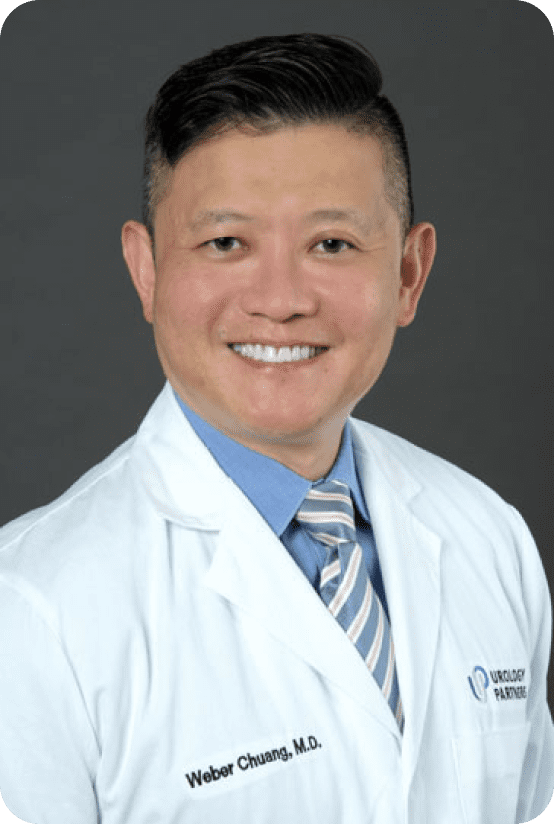
Weber Chuang, MD
Retired September 2025
Dr. Weber Chuang will be retiring from medical practice effective September 26, 2025. To ensure that your medical care continues seamlessly, your medical records will remain securely within the practice and your ongoing care will be transitioned to another physician within our practice. You may schedule appointments directly by contacting our office at 866-367-8768 or via your patient portal.
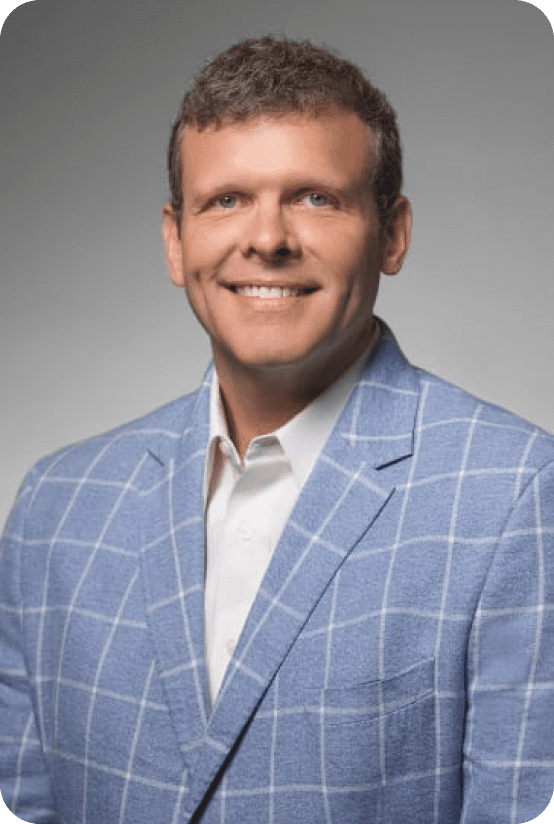
Adam Cole, MD, FS
“By staying abreast of the latest developments in pathology, I can help safely guide cancer patients toward a personalized treatment plan.”
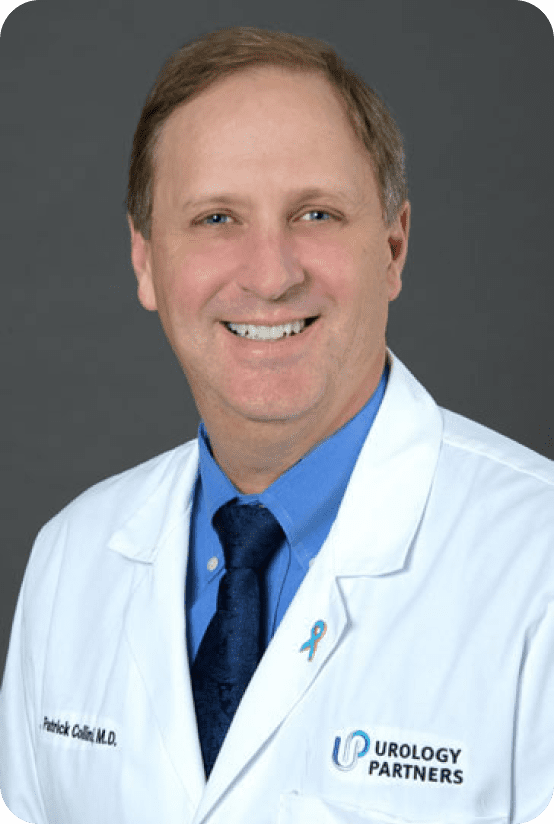
M. Patrick Collini, MD
“We have a patient-first approach. Every decision we make is rooted in what’s best for our patients. It’s all about providing the highest quality care possible.”
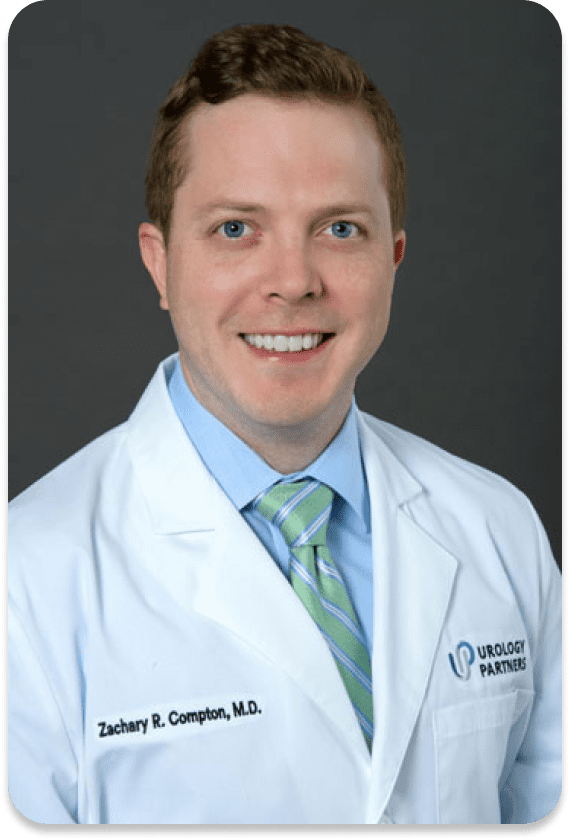
Zachary Compton, MD
“I like that urology isn’t just based on treating disease, but focuses on treating the person as whole. A lot of it has to do with improving a patient’s quality of life.”
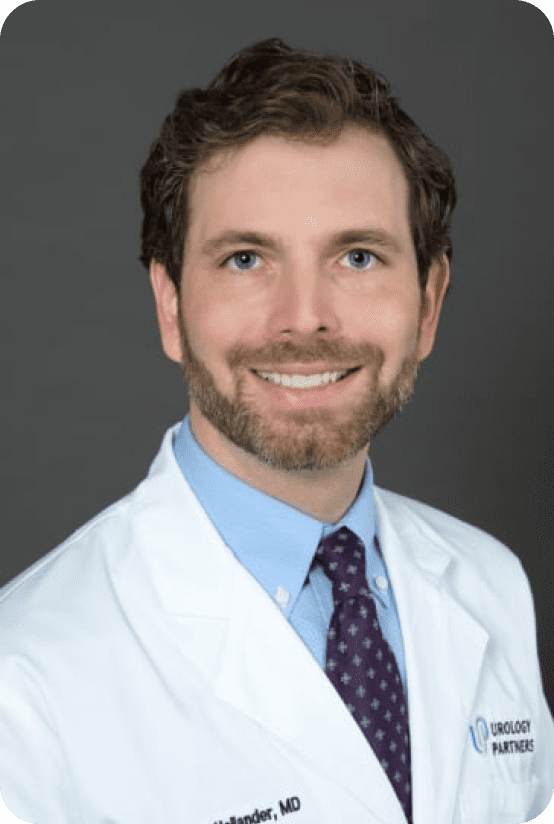
Adam Hollander, MD
“Many urologic conditions can be cured or fixed, so you can really take care of people and help them live longer and more meaningful lives.”
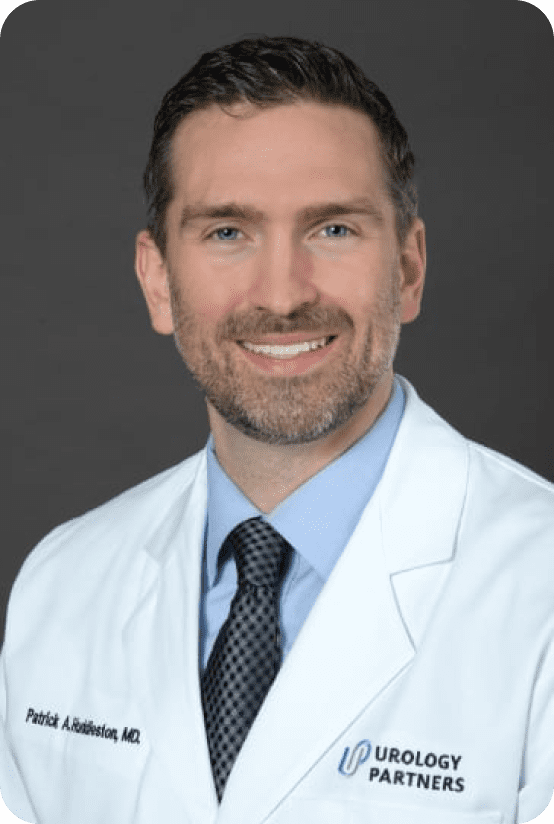
Patrick A. Huddleston, MD
“Educating my patients, helping guide them through all their options, and providing them with high-quality treatment are of the utmost importance to me.”
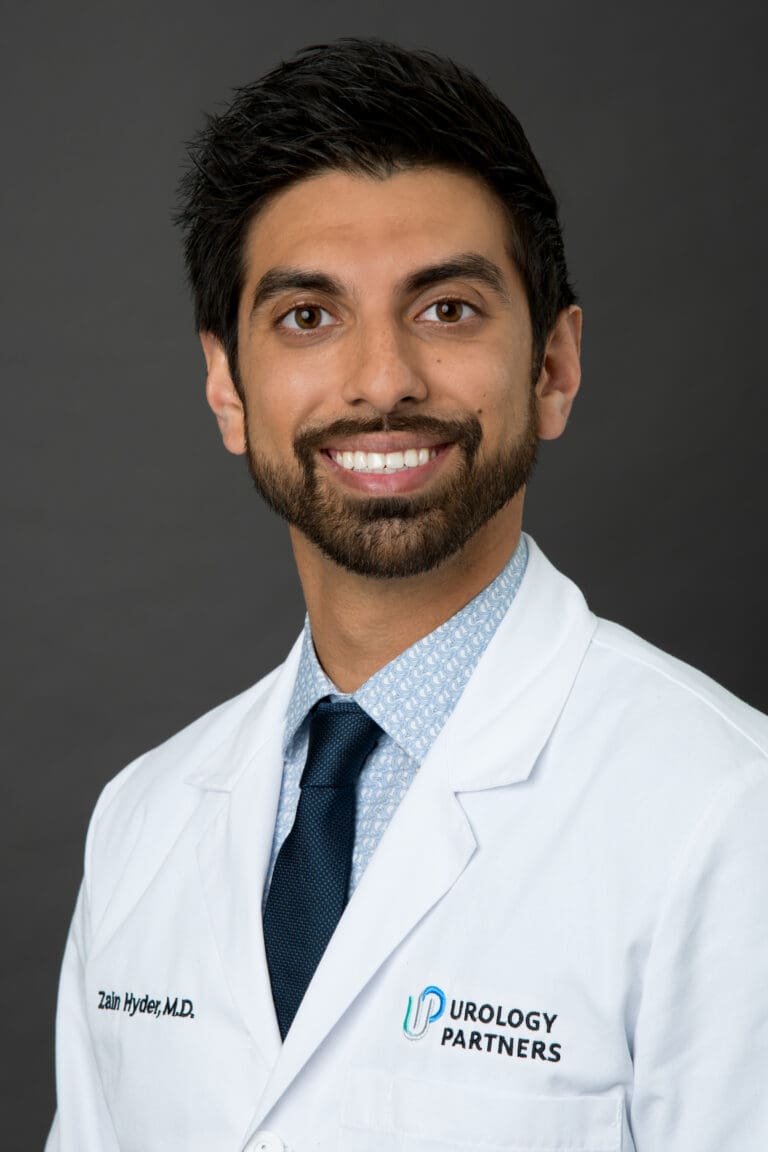
Zain Hyder, MD
“When someone entrusts me with their care, I always keep in mind that I may be speaking with someone who has just worked up enough courage to talk about a very private health issue for the first time”

Peter LaNasa, MD
“It is important for cancer patients to understand their treatment options, with emphasis on that which is best proven and can offer the highest quality of life!”
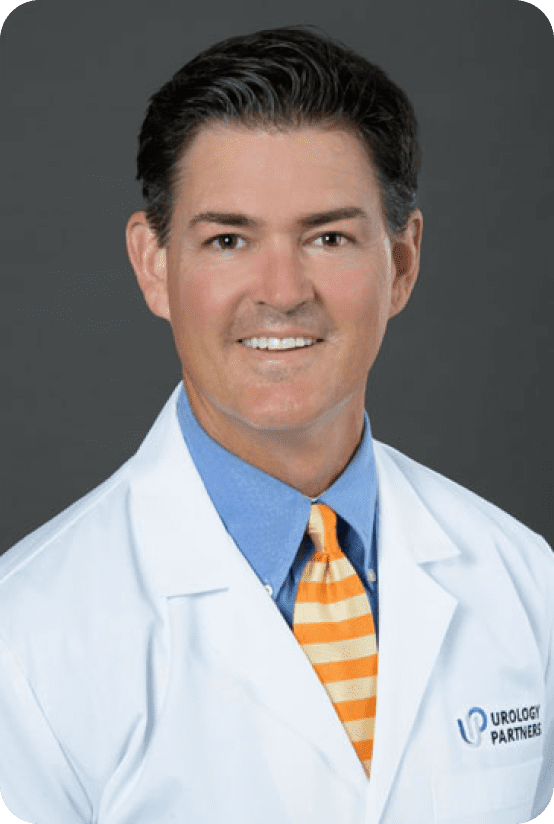
Justin Tabor Lee, MD
“The most rewarding thing about what I do is help someone have a good outcome. To tell someone that they’re ‘cancer free’ is pretty powerful.”

Wendy Leng, MD, URPS
“I am a woman urologist who has spent my entire career focused on the subspecialty of vaginal prolapse and incontinence—pelvic floor medicine. It’s very rewarding.”
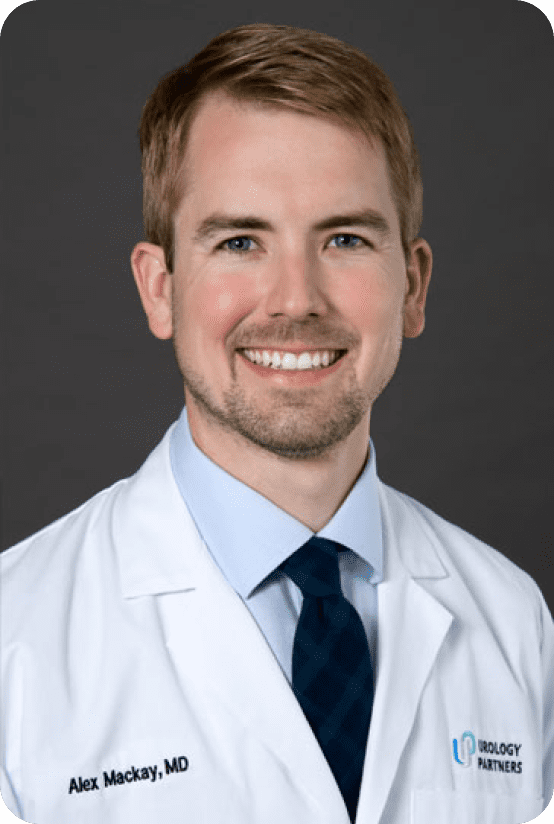
Alexander Mackay, MD
“With urology you can have long relationships with patients. I like forming relationships with my patients and seeing them really improve.”
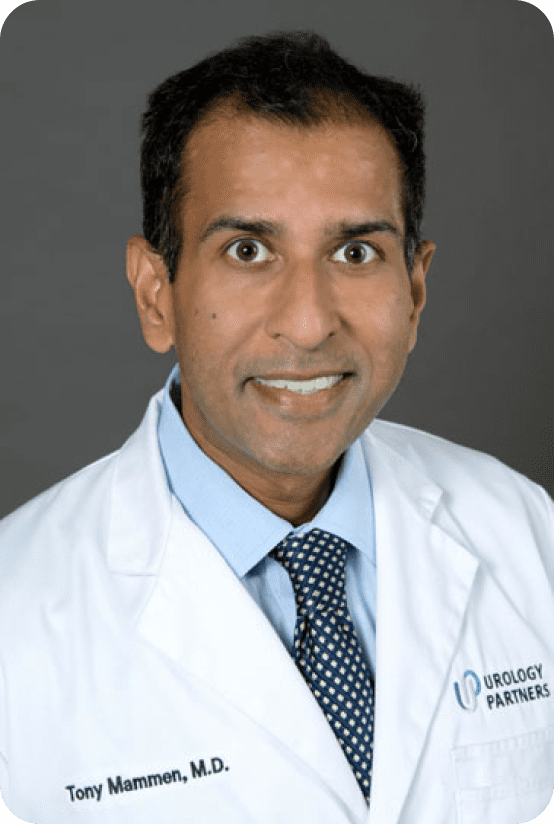
Tony Mammen, MD
“In my mind, patient care is a collaborative, team effort—approaching problems together and figuring them out together—so I’m big on patient education.”
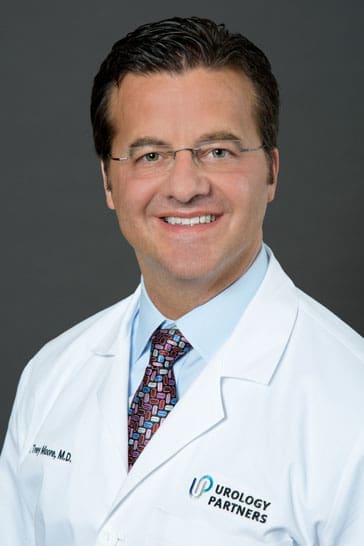
F.H. “Trey” Moore, MD
“I couldn’t practice medicine without making a connection with people. Gaining their trust is my number one goal.”
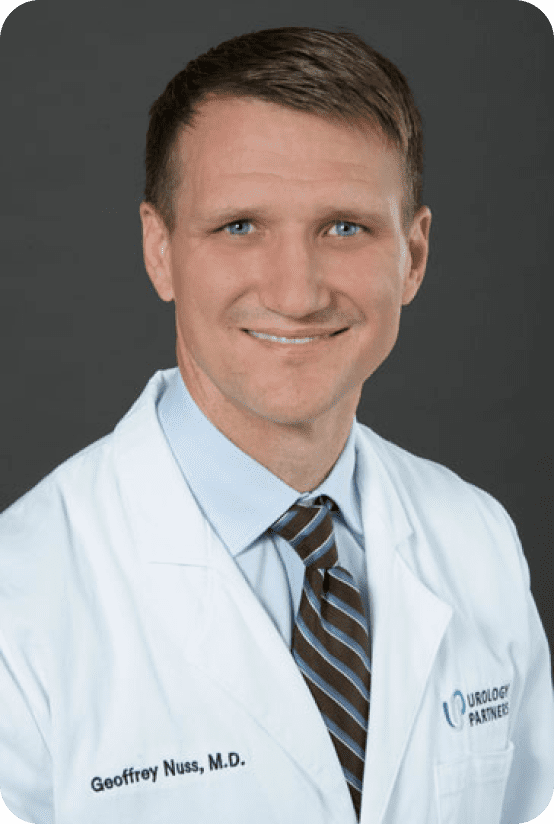
Geoffrey Nuss, MD
“Treatment is never one-size-fits-all. It’s important for people to have direct agency and control in the way they’re treated. My patients and I work together toward their well-being.”
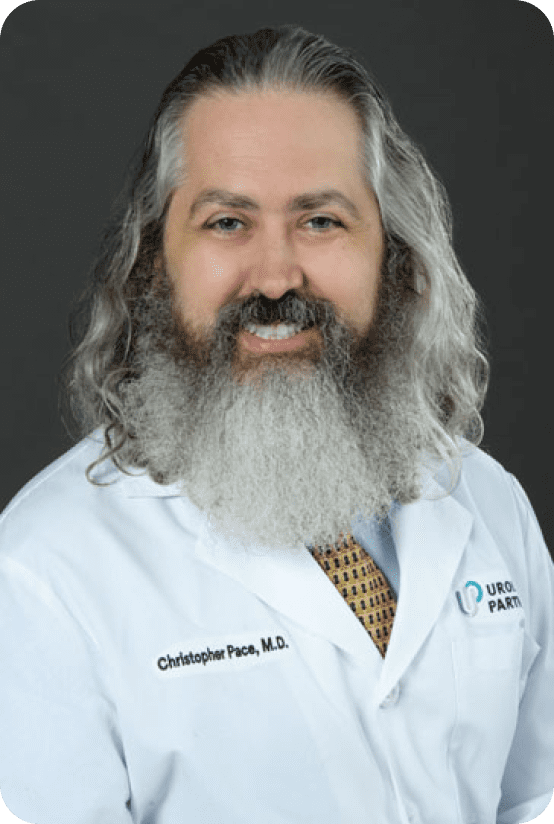
Christopher Pace, MD
“Being able to help improve someone’s life is really rewarding. All of my patients help make me a better physician.”
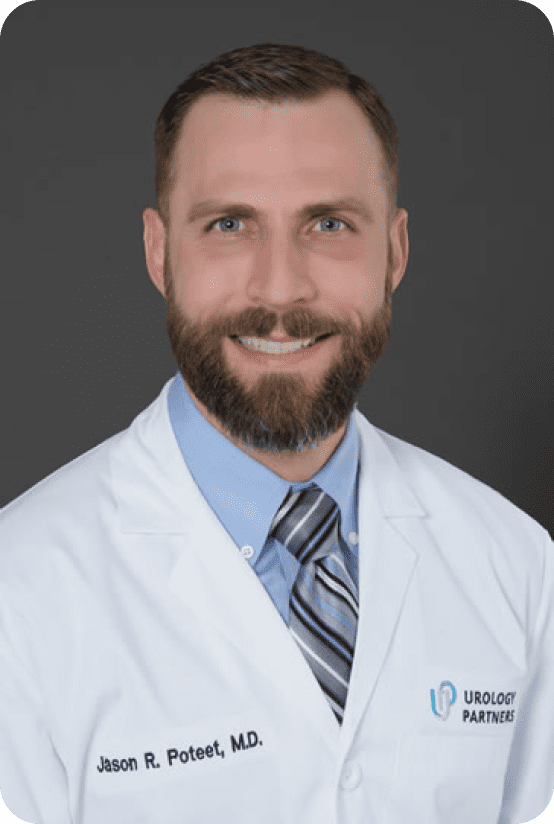
Jason Poteet, MD
“Studies show the average physician interrupts a patient 30 seconds into the visit. I want to hear my patients tell their story in their own words before I begin asking questions.”
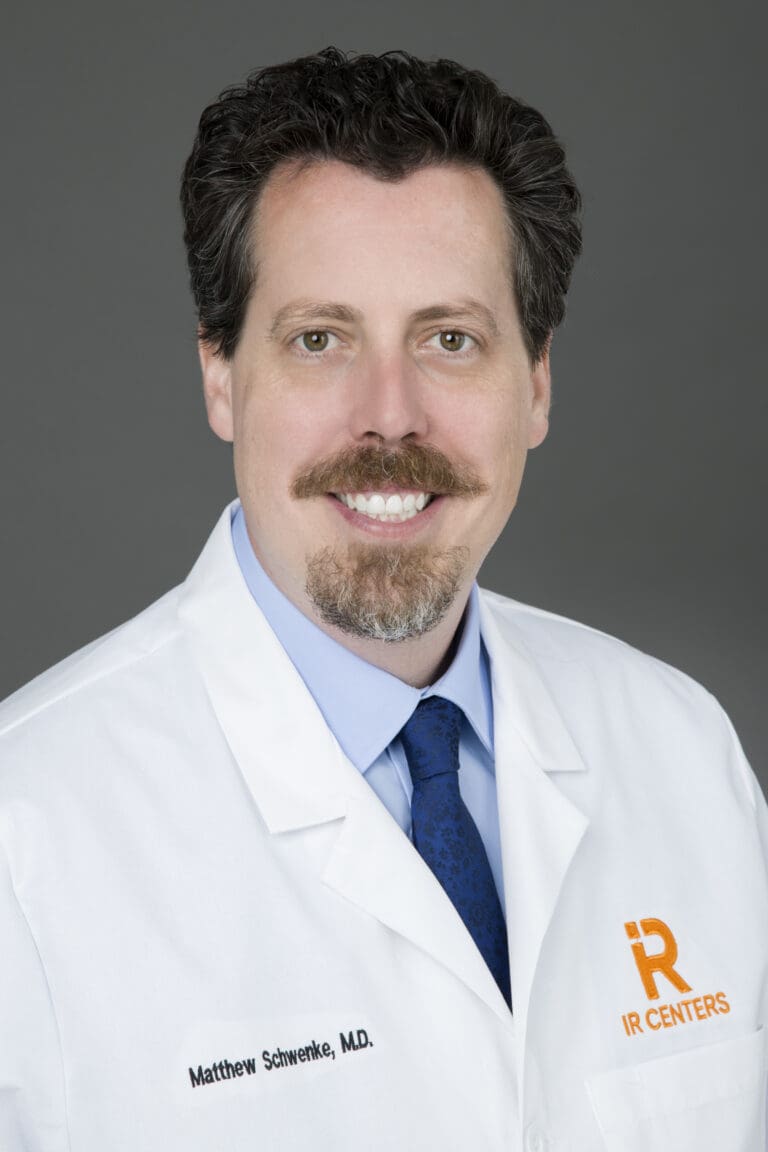
Matthew Schwenke, MD
Dr. Matthew Schwenke will no longer be practicing interventional radiology at IR Centers at Urology Partners of North Texas. To ensure that your medical care continues seamlessly, your ongoing care will be transitioned to another physician within our practice. You may schedule appointments directly by contacting our office at 682-888-0886 or via the link on the website. Your medical records will remain securely within the practice, so there is no additional step required on your part unless you wish to request a transfer elsewhere.
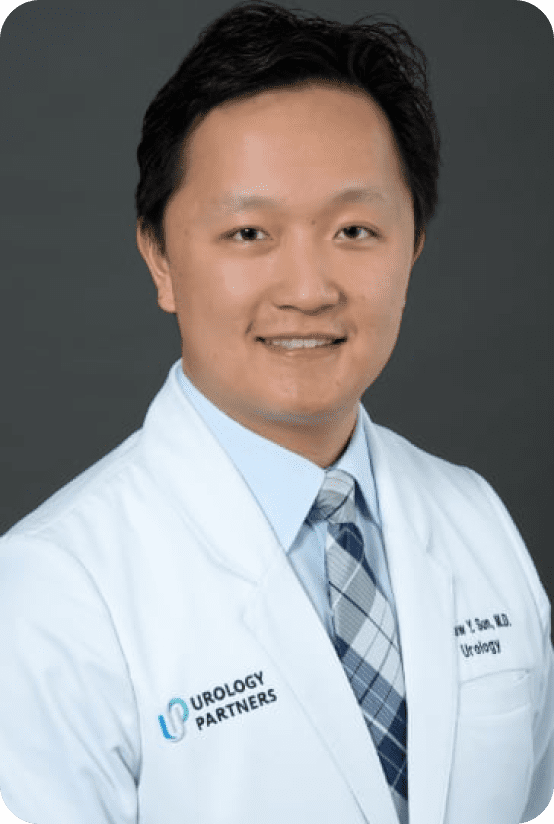
Andrew Y. Sun, MD
“Men are at higher risk for nearly every major preventable disease, yet we are notoriously bad about taking care of ourselves. I want to be a champion for men’s health.”
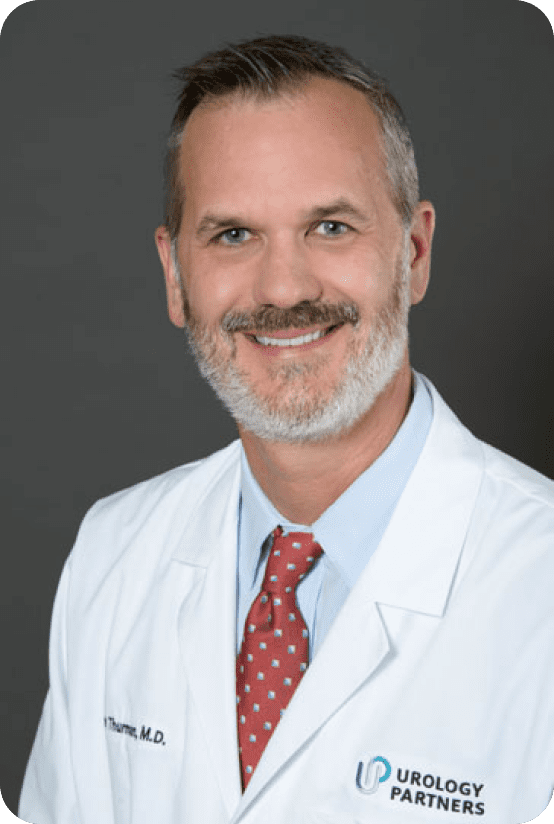
Scott Thurman, MD
“There’s no greater amount of trust a person can give someone else than a patient gives a surgeon. To have a patient say, ‘You saved my life,’ is very rewarding. I learn something from every patient.”
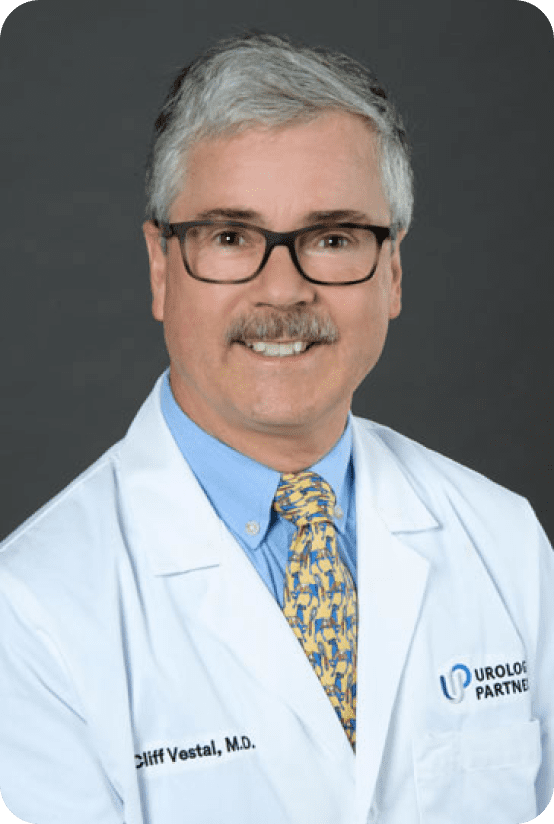
James Clifton Vestal, MD, FACS
“As a patient, you put your entire life in the hands of someone you have to trust implicitly. You need to know your physician cares and is looking out for your best interests.”
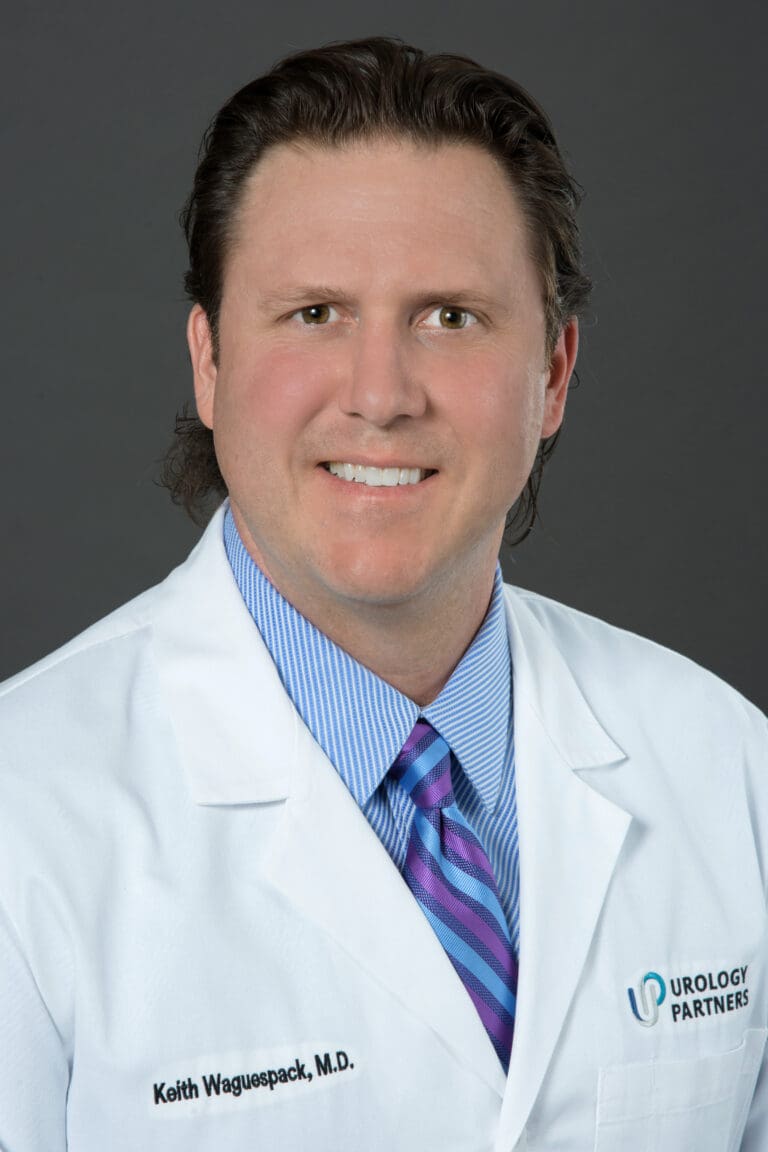
Keith Waguespack, MD
“For many men, it’s the first time they’ve had a significant health issue. Suddenly, they have cancer. I think about that every time I’m about to walk into a patient’s room and meet them for the first time.”
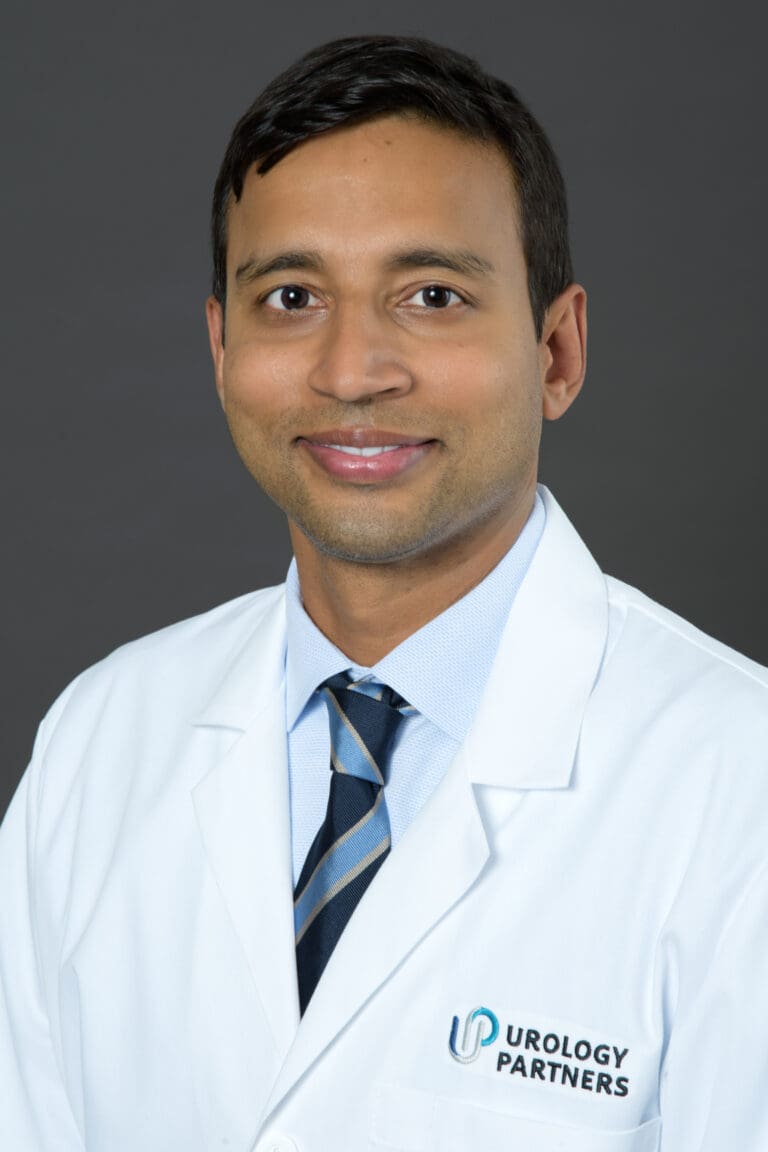
Keith Xavier, MD, URPS
“I’ve been a patient before, so I know what it’s like to be in a vulnerable position. I build trust by being honest and open, educating them about all the possibilities, and treating them the way I’d like to be treated.”
Physician Assistants & Nurse Practitioners
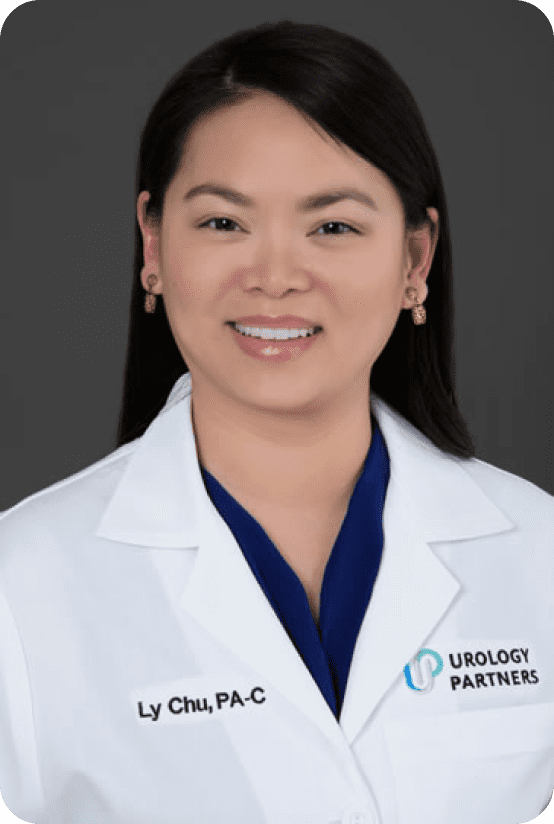
Ly Chu, PA-C
“I’m passionate about treating our patients as family. I want them to feel comfortable discussing anything with me, and know I’m here for them when they need me.”
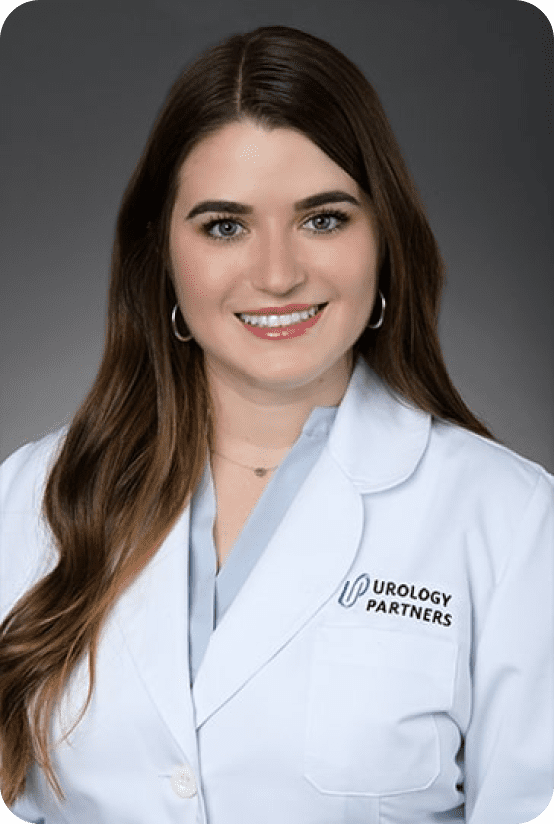
Marcela Torres Gutierrez, PA-C
“Sometimes patients think they’re alone. I just let them know they are in a safe space. And just as importantly, that their condition is something we can treat.”
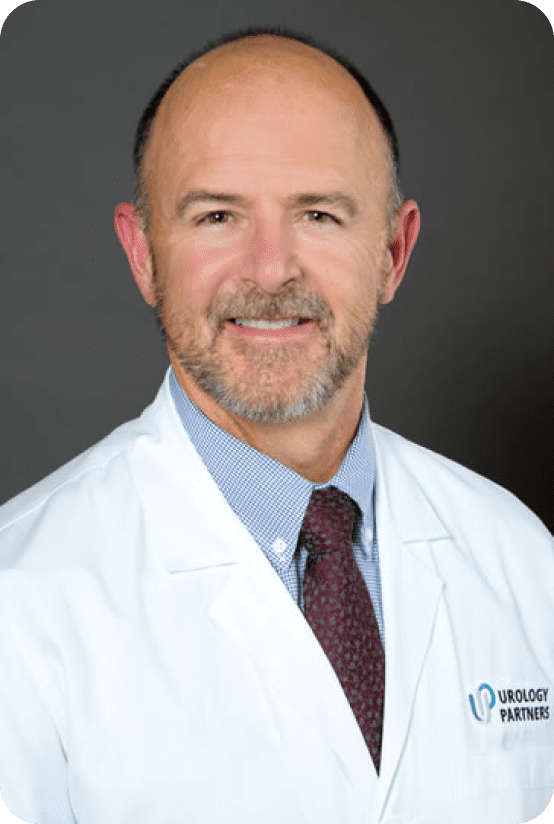
Troy Houston, PA-C
“I like treating patients and helping them obtain a better quality of life. Not a day goes by that we don’t improve a patient’s sexual health or performance.”

Tina Hoang, AGAC-NP
“Of course, no one wants to talk about urological problems. It’s a sensitive topic. I understand patients feel vulnerable. I always want to provide great care while protecting their dignity.”
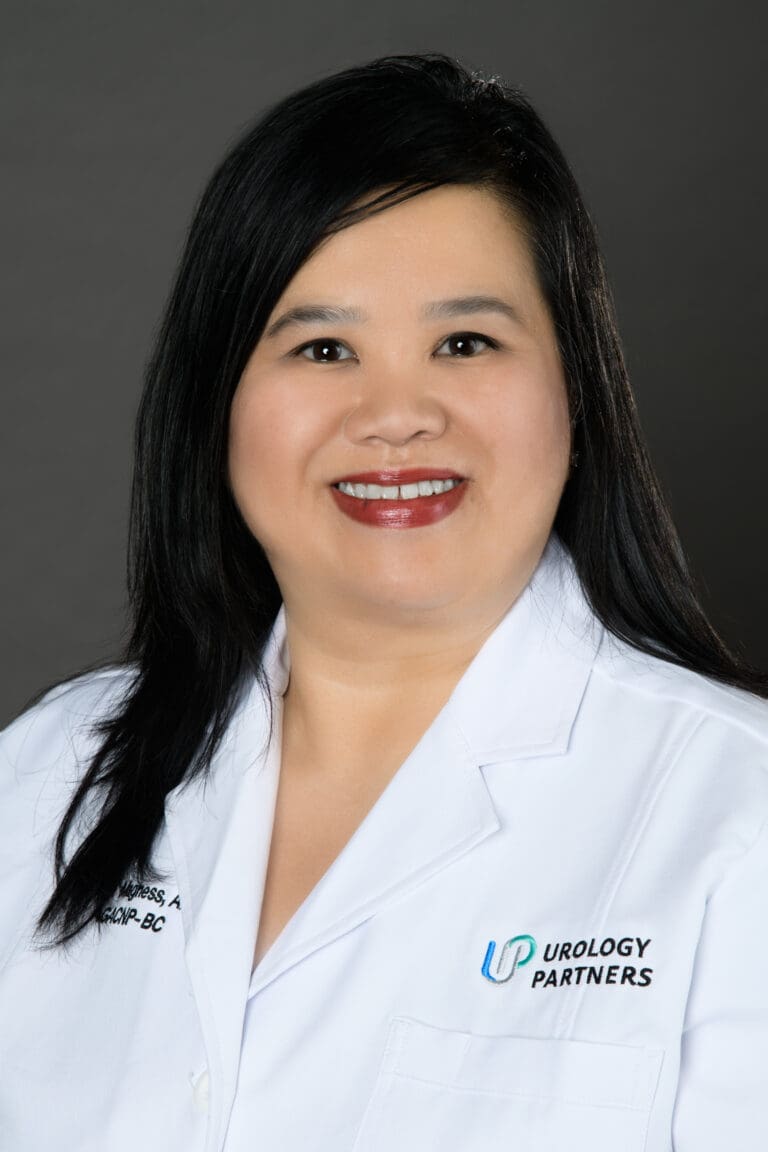
Patty Magness, APRN-CNP
Patty Magness’ interest in medicine was sparked early and never wavered. “My mentor was my aunt, who was a pediatrician,” Patty Magness explains. “Not only
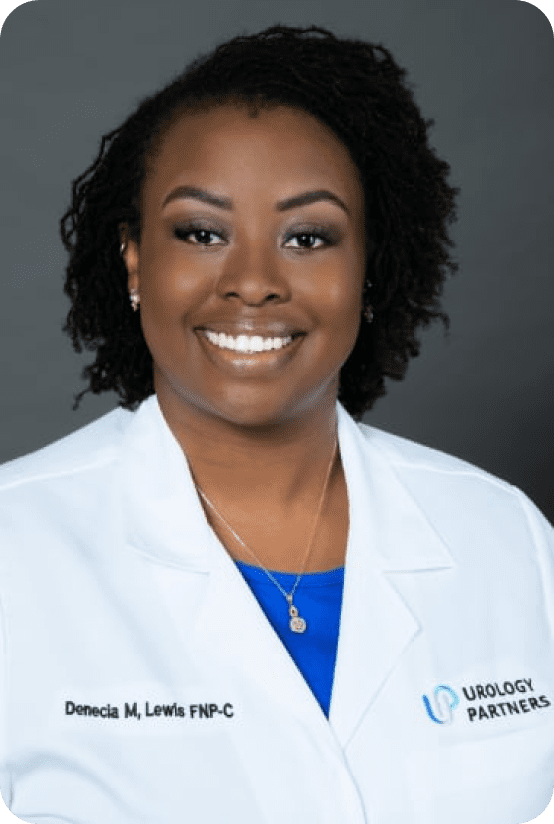
Denecia Lewis, FNP-C
“It’s important to me that I’m able to build a relationship with the people who entrust me with their care.”
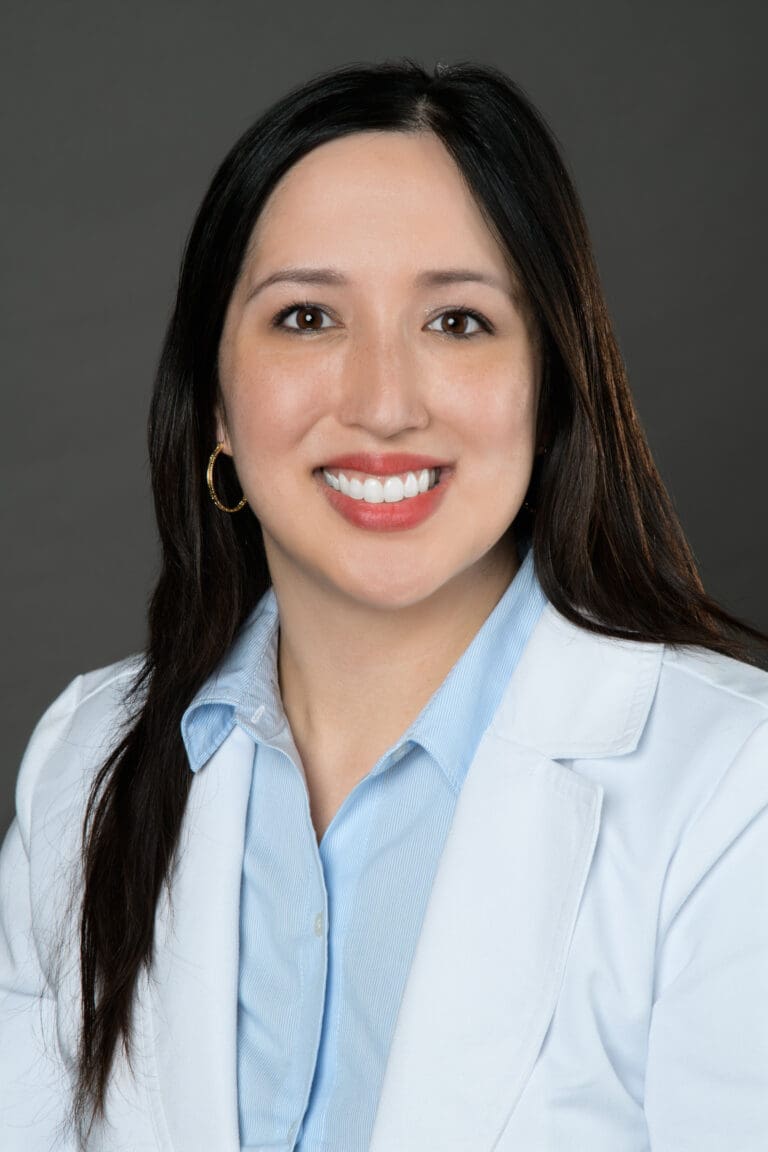
Tasha Martinez, APRN, FNP
“I’m honored I can comfort, encourage and help patients struggling with difficult urologic issues.”
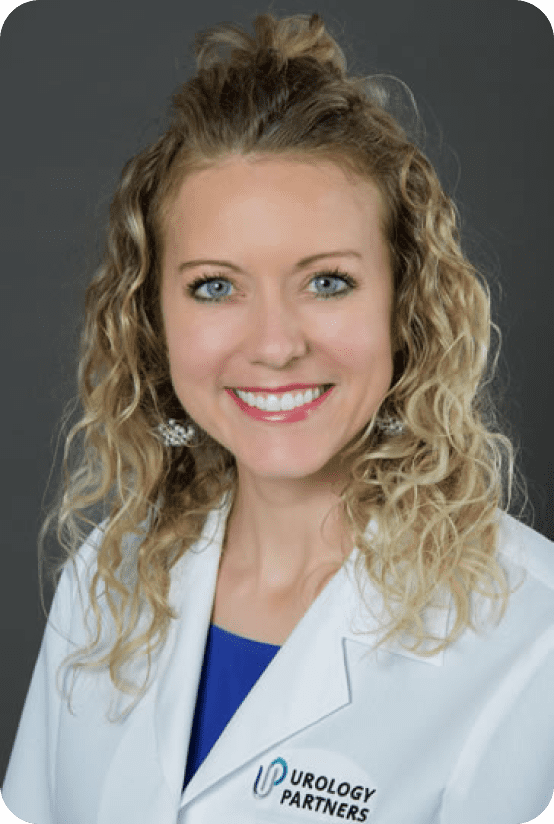
Kaitlyn Pizzini, PA-C
“I want to make sure my patients feel they are heard. Many are elderly and may have felt pushed aside before. I try to change that by listening.”
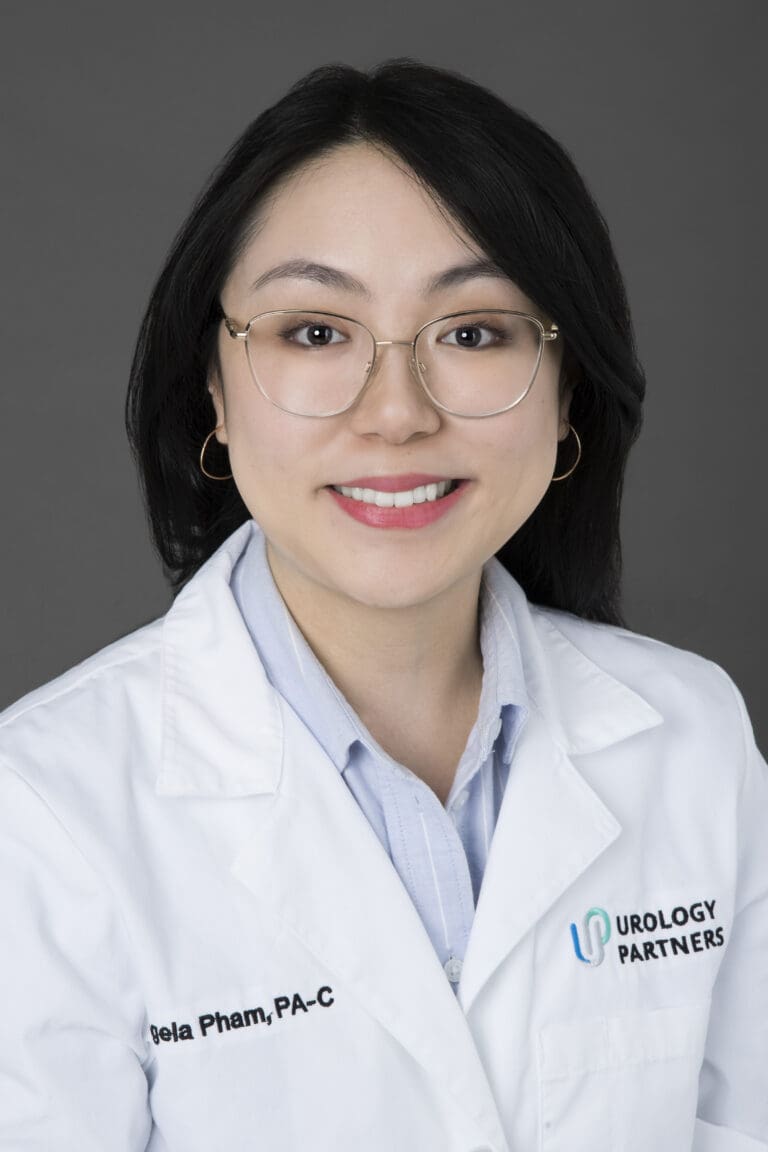
Angela Pham, PA-C
Whether it’s treating acute urological issues or managing chronic conditions, Angela is driven by the desire to improve the well-being of all her patients.
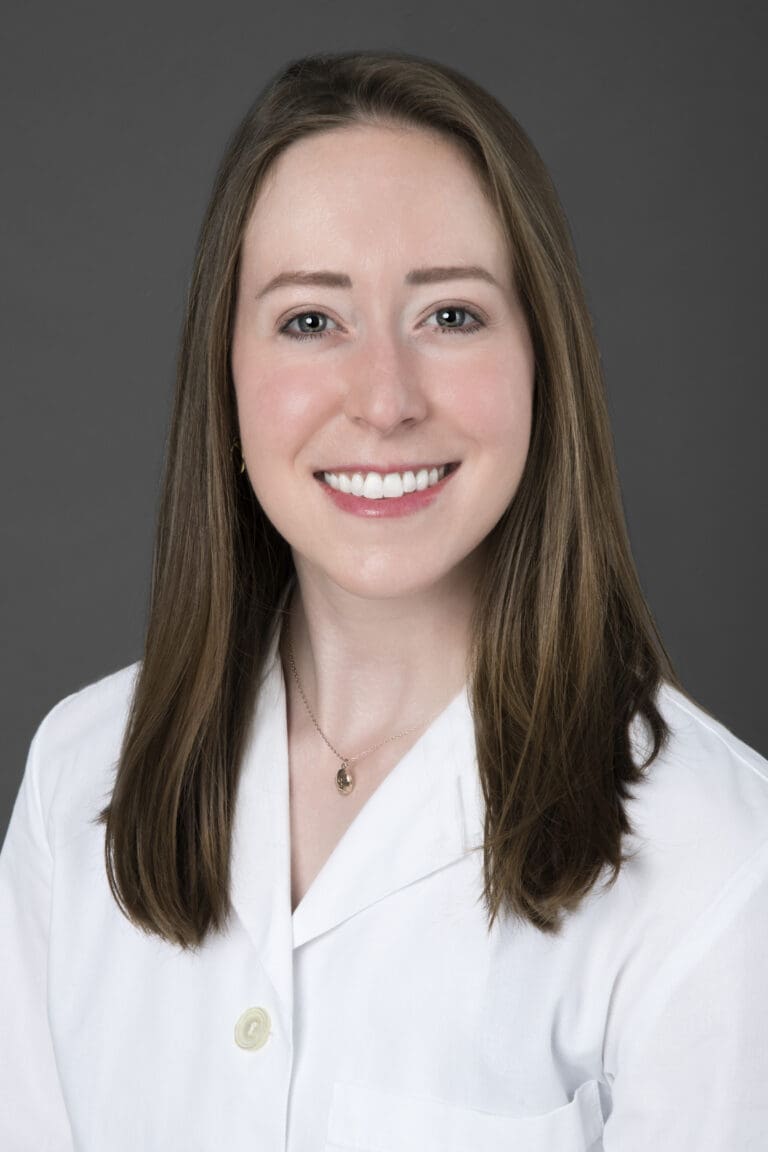
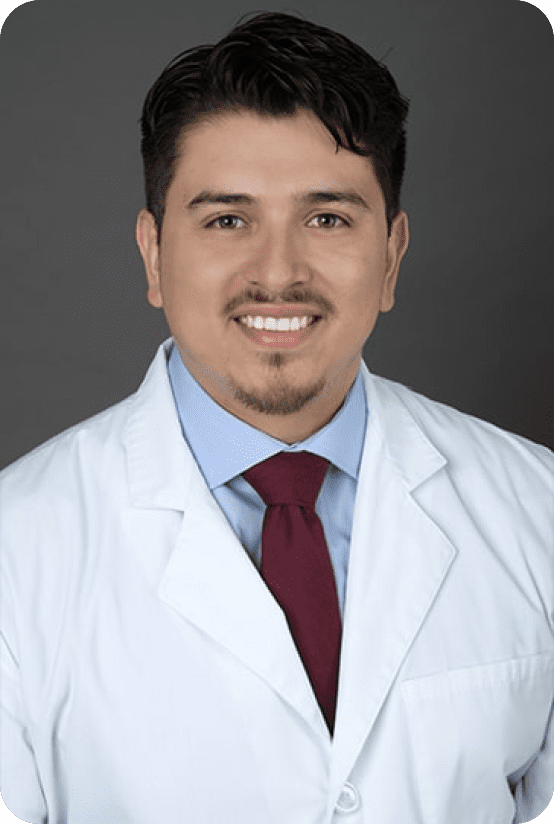
Luis Rodriguez, PA-C
“I want to make a difference whether it is helping someone dealing with urinary tract infections, low T, erectile dysfunction, prostatitis or advanced prostate cancer.”
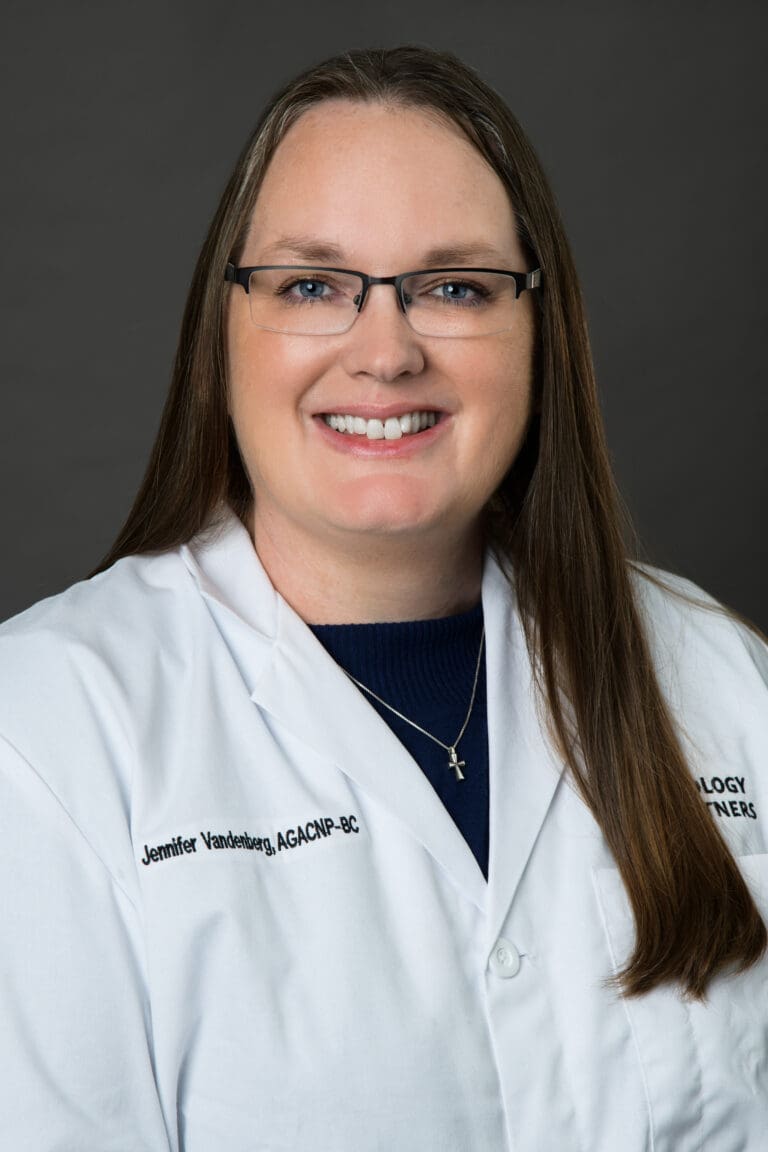
Jennifer Vandenberg, AGACNP-BC
When one of my incontinence patients is thrilled they don’t have to wear pads anymore, we celebrate. Those are important milestones.”
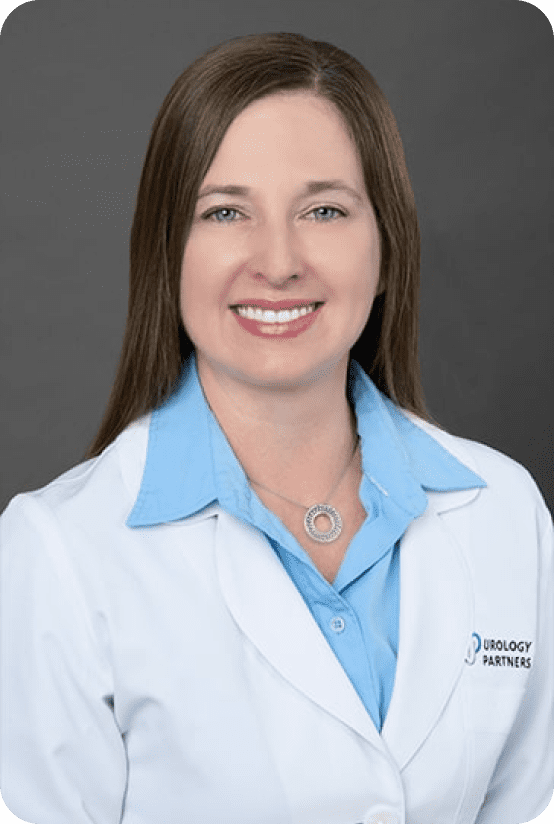
Lindsey Washburn, PA-C
“I find I have good rapport with all my patients, and they trust me—which I very much appreciate. That trust allows me to help them on their journey to better health.”
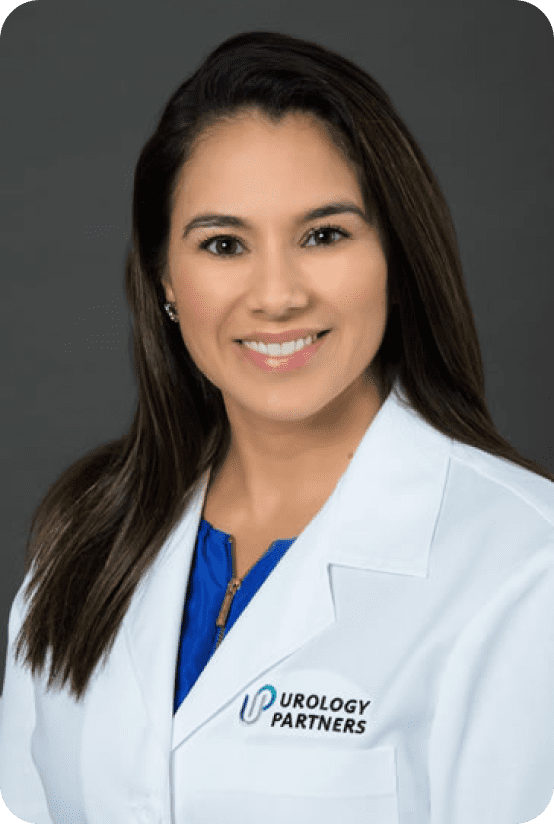
Amanda White, PA-C
Amanda White, PA-C will no longer be seeing patients at Urology Partners of North Texas after 2/23/26. To ensure that your medical care continues seamlessly, your ongoing care will be transitioned to another provider within our practice. You may schedule appointments directly by contacting our office at 866-367-8768 or via the link on the website. Your medical records will remain securely within the practice, so there is no additional step required on your part unless you wish to request a transfer elsewhere.
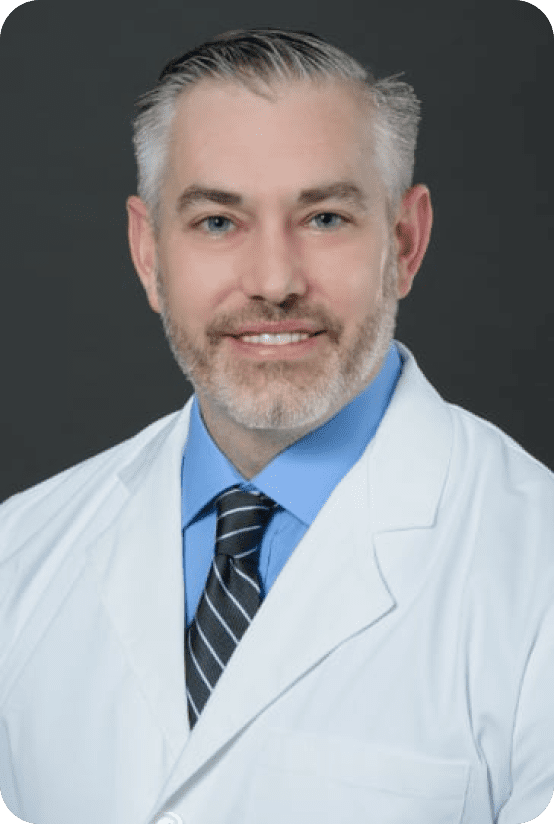
Michael D. White, PA-C
“I have a real love for men’s health. Dramatic advances in robotic surgery and other technology have brought big changes in the quality and quantity of life for men with bladder, kidney and prostate cancer.”
Patient Navigators
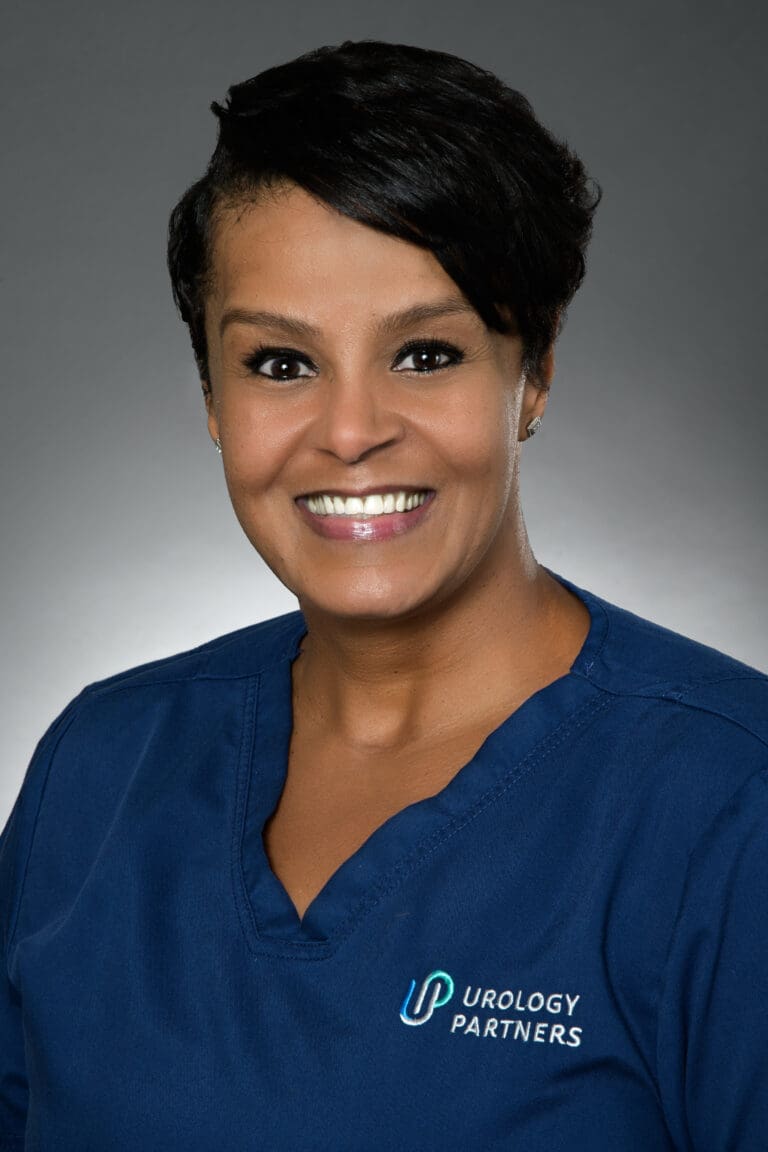
Willie Banks-Jones, LVN
As a young girl, Willie Banks-Jones admits she had a serious case of hero worship. “My mom was a nurse, and I went to the
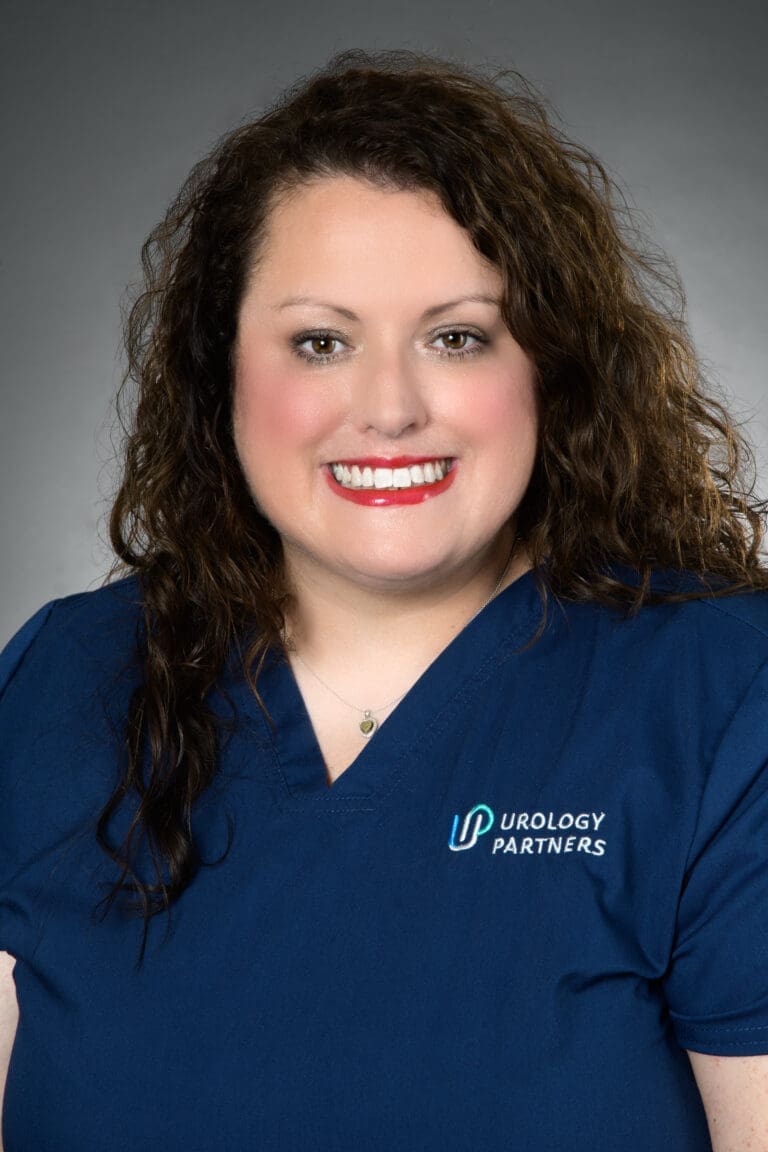
Nina Turcotte, EMT
“My purpose is to an advocate. There are women who think leaking all over themselves is a normal part of life—that you just have to live with it. I help change that.”
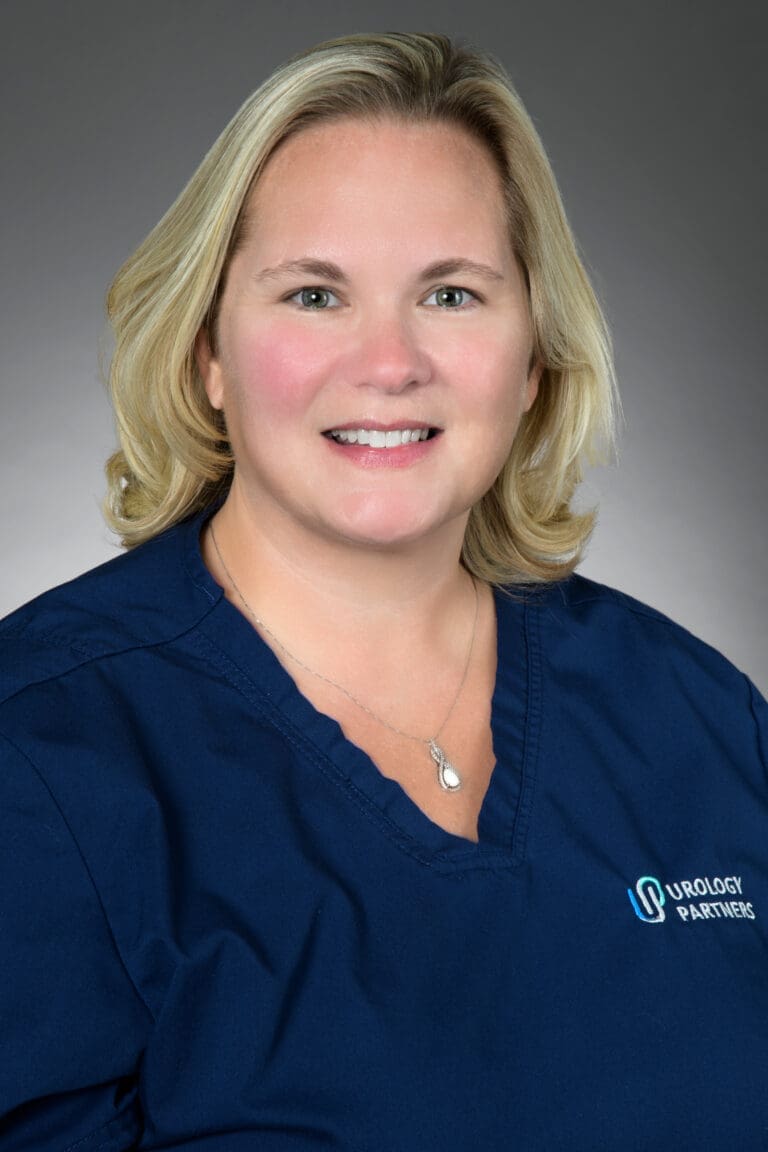
Meredith Norris, BSN, RN, CURN
“A lot of my patients will say, ‘If it wasn’t for you, I wouldn’t understand my incontinence.’ Anytime a patient comes back and says thank you, it is extremely rewarding.”